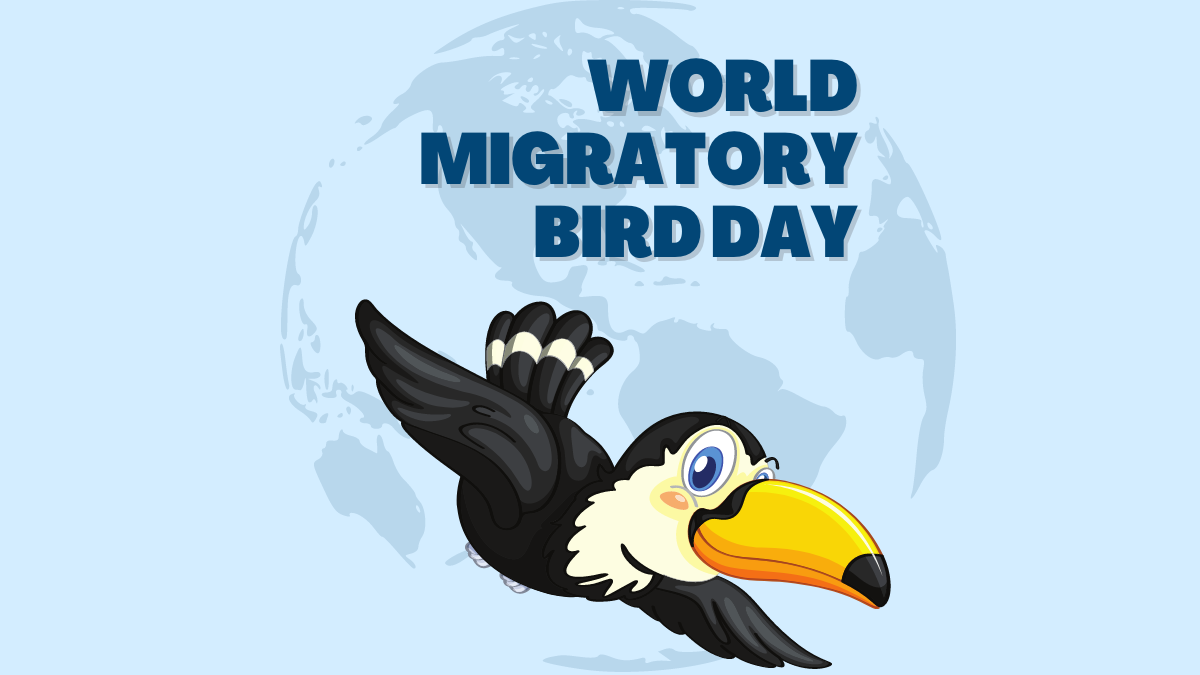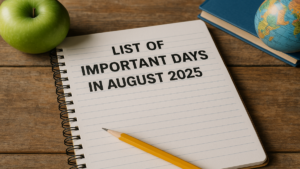World Migratory Bird Day (WMBD) is a biannual global event aimed at raising awareness about the need for the conservation of migratory birds and their habitats. In 2024, WMBD will be observed on 11 May and 12 October, marking key dates in the migratory cycles of birds across the world.
Date and Theme for 2024
World Migratory Bird Day is celebrated twice a year—in May and October—to reflect the seasonal bird migrations in different parts of the world. The 2024 theme, “Insects for Birds”, highlights the importance of insects for migratory birds and calls for immediate action to protect the rapidly declining populations of insects.
The campaign aims to raise awareness about the critical role insects play in providing food for birds, especially during the breeding season and migration. Without healthy insect populations, many bird species face significant challenges in survival.
History of World Migratory Bird Day
World Migratory Bird Day was first established in 2006 by the United Nations Environment Programme (UNEP) and the Convention on the Conservation of Migratory Species of Wild Animals (CMS). Its goal is to foster international cooperation in the protection of migratory birds and their habitats. Over the years, WMBD has grown into a worldwide campaign, engaging governments, organizations, and communities to take action in conserving these essential species.
The day is marked by a range of activities, including bird-watching events, educational programs, and campaigns that emphasize the need for habitat preservation and restoration.
Significance of World Migratory Bird Day
The significance of World Migratory Bird Day lies in its focus on the interconnectedness of ecosystems and the global impact of human activities on migratory species. Each year, millions of birds travel vast distances, often across continents, facing numerous threats such as habitat destruction, climate change, pollution, and illegal hunting.
In 2024, the emphasis on insect populations adds a critical dimension to the conservation discussion. Insects are a primary food source for many bird species, particularly during migration when birds need extra energy. However, insect populations are declining at alarming rates due to habitat destruction, the overuse of pesticides, and climate change. This decline poses a serious threat to bird populations, as the absence of insects can significantly disrupt their migratory patterns and breeding success.
The Role of Insects in Bird Migration
Insects, such as beetles, caterpillars, and flies, provide vital energy for birds during migration. Many migratory species, including warblers, swallows, and flycatchers, rely heavily on insects to fuel their long journeys. The availability of insects not only affects the timing of migrations but also influences how successful birds are in reaching their breeding and wintering grounds.
However, with the increasing use of insecticides and the destruction of insect habitats, this vital food source is diminishing. This year’s campaign stresses the need for organic farming, reducing pesticide use, and restoring habitats to reverse the decline in insect populations.
A Global Call to Action
World Migratory Bird Day 2024 calls for collective action to reverse the decline of insect populations through sustainable practices such as:
- Reducing the use of pesticides and fertilizers that harm insect populations
- Encouraging organic farming and sustainable agricultural practices
- Protecting and restoring insect habitats, including wetlands, forests, and grasslands
- Raising awareness about the importance of insects in the survival of migratory birds
International Cooperation and Initiatives
WMBD 2024 highlights the role of international cooperation in bird conservation. A special focus this year is on protecting bird populations in World Heritage Sites from the spread of avian flu, which has caused significant bird and mammal mortality worldwide.
The UNESCO World Heritage Centre, in partnership with various organizations, has been conducting webinars on how to protect wildlife from avian influenza in UNESCO World Heritage Sites, Biosphere Reserves, and Ramsar Wetlands. These webinars provide key information on managing the spread of the virus, which is threatening bird species across the globe.










 World Elephant Day 2025: Bringing the Wo...
World Elephant Day 2025: Bringing the Wo...
 International Youth Day 2025: History, S...
International Youth Day 2025: History, S...
 List of Important Days in August 2025, N...
List of Important Days in August 2025, N...

